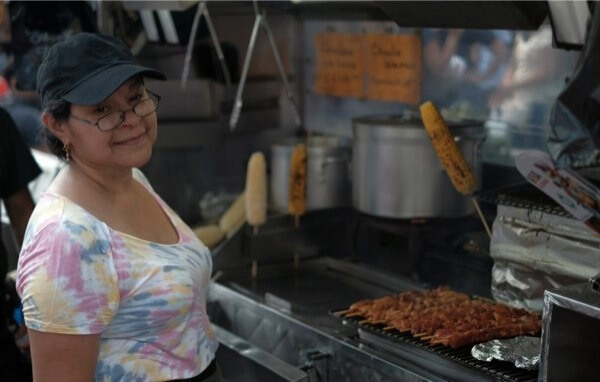By Bill Parry
Mobile food vendors will soon have letter grades just like brick and mortar restaurants across the five borough’s the city’s Health Department announced last week.
The new program, launching next month, will introduce a scoring system where food trucks and carts receive points for violations at their food safety inspections, and their score will correspond to an “A”, “B” or “C” grade, which will be posted on the unit.
The new letter grading program will apply to all 5,500 food carts and trucks authorized to operate in New York City and is required under last year’s Local Law 108.
“I cannot imagine someone not looking for a restaurant’s letter grade from our city’s Health Department before deciding whether or not to patronize a restaurant,” City Councilwoman Karen Koslowitz (D-Forest Hills) said. “The letter grade has become absolutely essential as it relates to restaurants.”
“Yet, every day, countless numbers of people in New York purchase food from a street vendor without knowing to a general degree the cart’s compliance with the NYC Health Code,” she added. “I believe that the customers who buy food from a street vendor deserve to have the same ability to make an informed decision as do patrons of restaurants.”
The Street Vendor Project represents nearly 2,000 vendor members at the Urban Justice Center advocating for their rights in the face of New York’s aggressive “quality of life” crackdowns as well as those that have been denied access to vending licenses.
“The Street Vendor Project has supported the idea of providing letter grades for mobile food vendors for some time now,” SVP Legal Director Matthew Shapiro said. “Since vendors are already following the same health code as restaurants they should get the benefit of displaying an ‘A’ grade.”
The organization does have a problem with one part of Local Law 108. In order to locate carts and trucks when they are due for inspection, the Health Department will attach a location-sharing device on every unit.
Many of the street vendors, of which nearly 85 percent are immigrants, fear the GPS systems fearing information would be shared with ICE agents.
“We are still concerned about the potential consequences of GPS tracking as the vast majority of vendors are immigrants,” Shapiro said. “It is already precarious for these vendors to be working in public space and having another means of locating them could pose additional dangers for their immigration status.”
The city claims the data will only be accessible to Health Department staff or agents of the department, and they will also be protected from disclosure in all instances except where ordered by the court.
Reach reporter Bill Parry by e-mail at bparr































